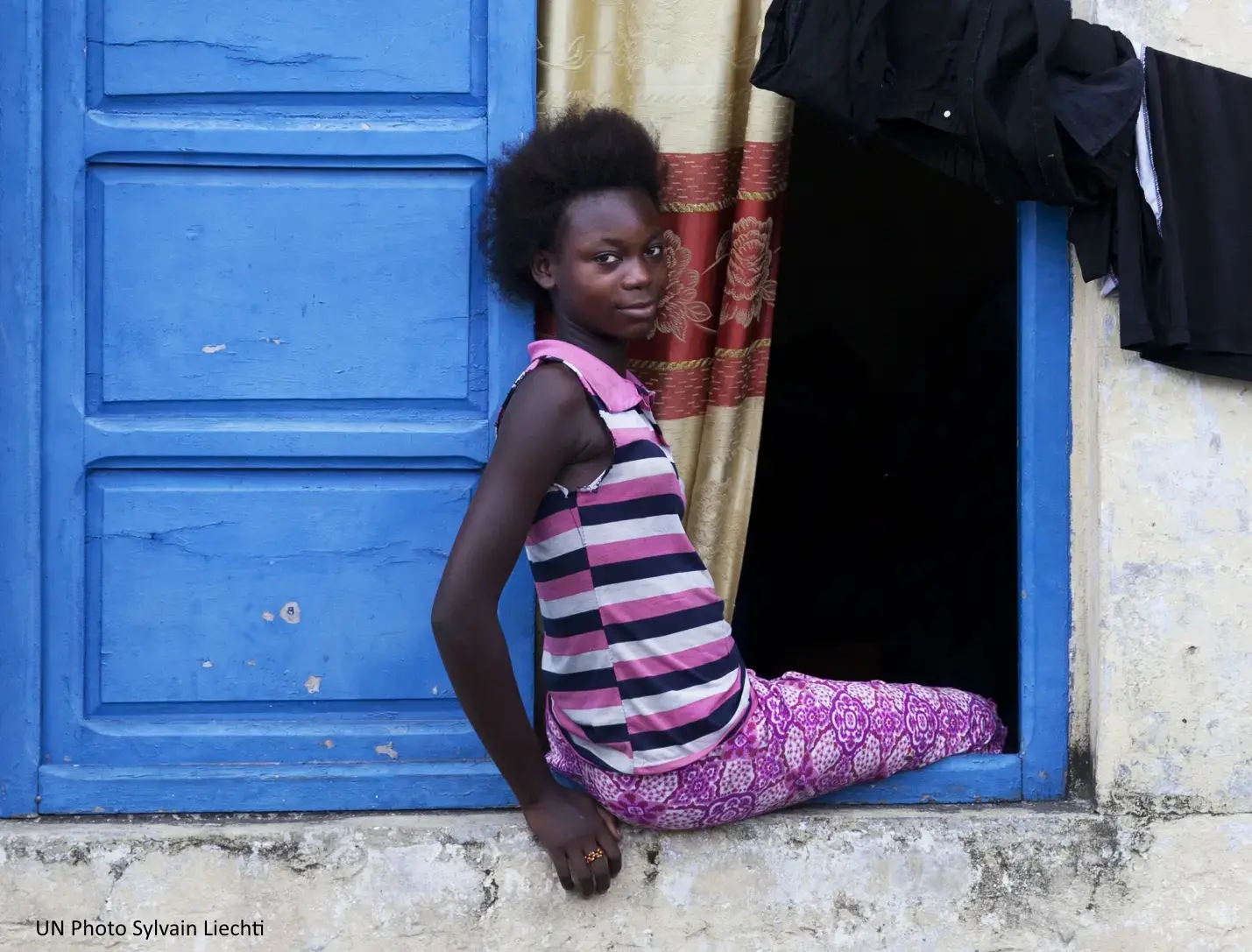JOHANNESBURG, South Africa and Juba, South Sudan—“The girl was in coma when police brought her to the centre. She [had been] gang raped and badly beaten. We got her admitted at Juba Teaching Hospital in a frantic effort […] to save her life.”
The girl was brought to us three days after the rape. If she [had been] brought in immediately, maybe we could have saved her life.
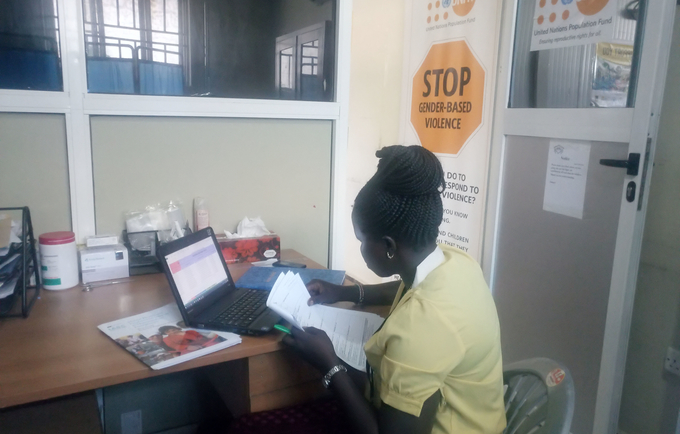
The seriously injured girl was assisted by Fatuma Tarjan, a response officer for gender-based violence (GBV) at the Family Protection Centre based at Juba Teaching Hospital.
Tragically, she died. “I only wish we could [have done] more but there were other factors,” said Ms. Tarjan. “The girl was brought to us three days after the rape. If she [had been] brought in immediately, maybe we could have saved her life.”
Rape survivors make up the large majority of cases at the facility, a one-stop centre for responding to GBV and provides comprehensive medical, psychosocial and legal services for survivors of GBV, she reports. In 2019, more than 1,800 GBV survivors accessed services at the nine one-stop centres across the country. Of these, 92 per cent were female and 42 per cent were children.
The centres have played a significant role in the conviction of 106 perpetrators, a major achievement in a country where formal legal services are still not widely used.
However, high levels of sexual and gender-based violence remain of major concern not only in South Sudan but worldwide, as does the lack of gender equality for women and girls.
Gains in gender equality but much work remains
The month of March is Women’s month. This year’s International Women’s Day, celebrated globally on 8 March, was themed “I am Generation Equality: Realizing Women’s Rights” in alignment with UN Women’s multigenerational campaign, Generation Equality. This marks the 25th anniversary of the Beijing Declaration and Platform for Action, which is the most progressive blueprint for advancing women’s rights.
Progress towards gender equality is faltering and hard-won advances are being reversed.
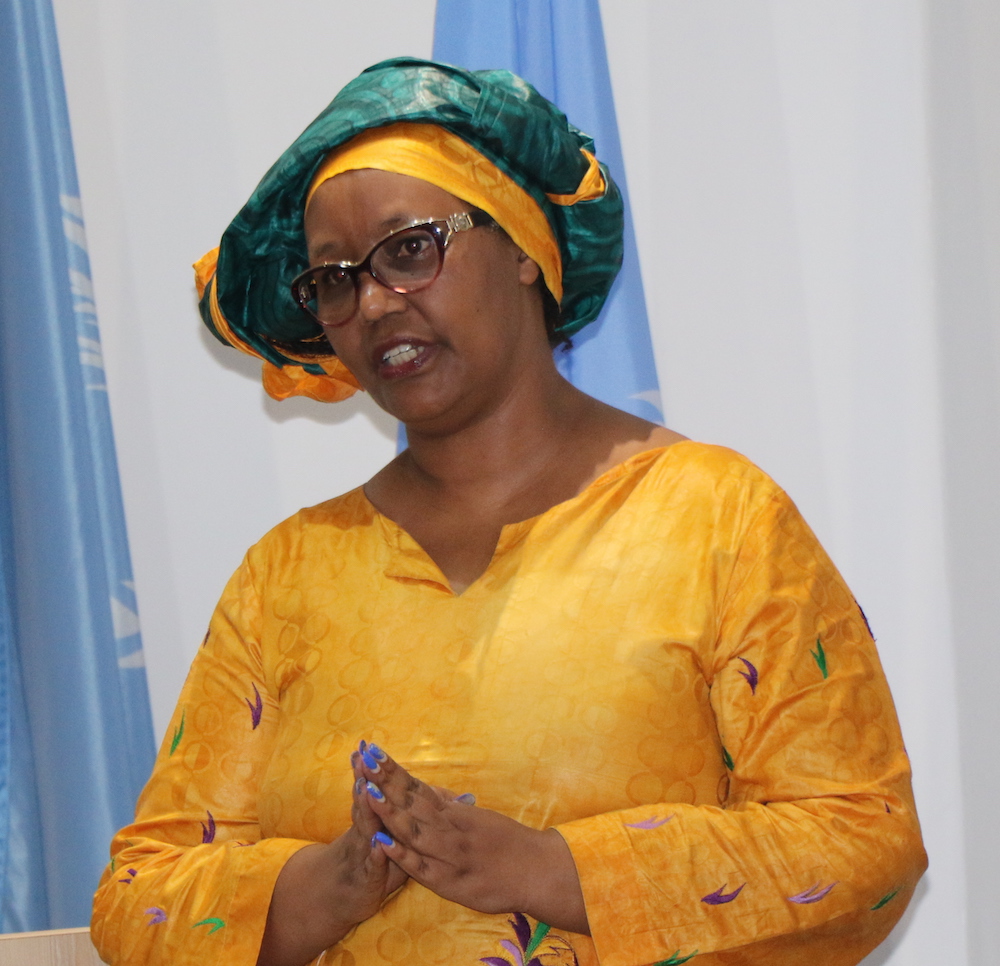
globally, progress is faltering, said Jacqueline Utamuriza-Nzisabira,
UN Women African Regional Advisor on HIV and Gender.
© UNFPA ESARO/Lindsay Barnes
At an event to commemorate International Women’s Day in Johannesburg, South Africa on 6 March, Jacqueline Utamuriza-Nzisabira, UN Women African Regional Advisor on HIV and Gender, said that since the gender equality movement began, gains have been made in respect to achieving gender equality globally.
However, these anniversaries come at a challenging time for women’s equality. “Progress towards gender equality is faltering and hard-won advances are being reversed. There is still rampant inequality,” Ms. Utamuriza-Nzisabira said.
Despite progress, no country has achieved gender equality, a UN Women review of women’s rights showed, she said. Globally, men make up 75 per cent of parliamentarians, 73 per cent of managerial positions, and 70 per cent of climate negotiators. “This is not an inclusive world,” she said.
More girls are in school than ever before, fewer women are dying in childbirth, and the proportion of women in parliament has doubled. These are great gains. Yet, less than two thirds of women are in the labour force, compared to nine tenths of men. Nearly one in five women have experienced violence from an intimate partner. And 32 million girls are still not in school.
There is still rampant inequality. This is not an inclusive world.
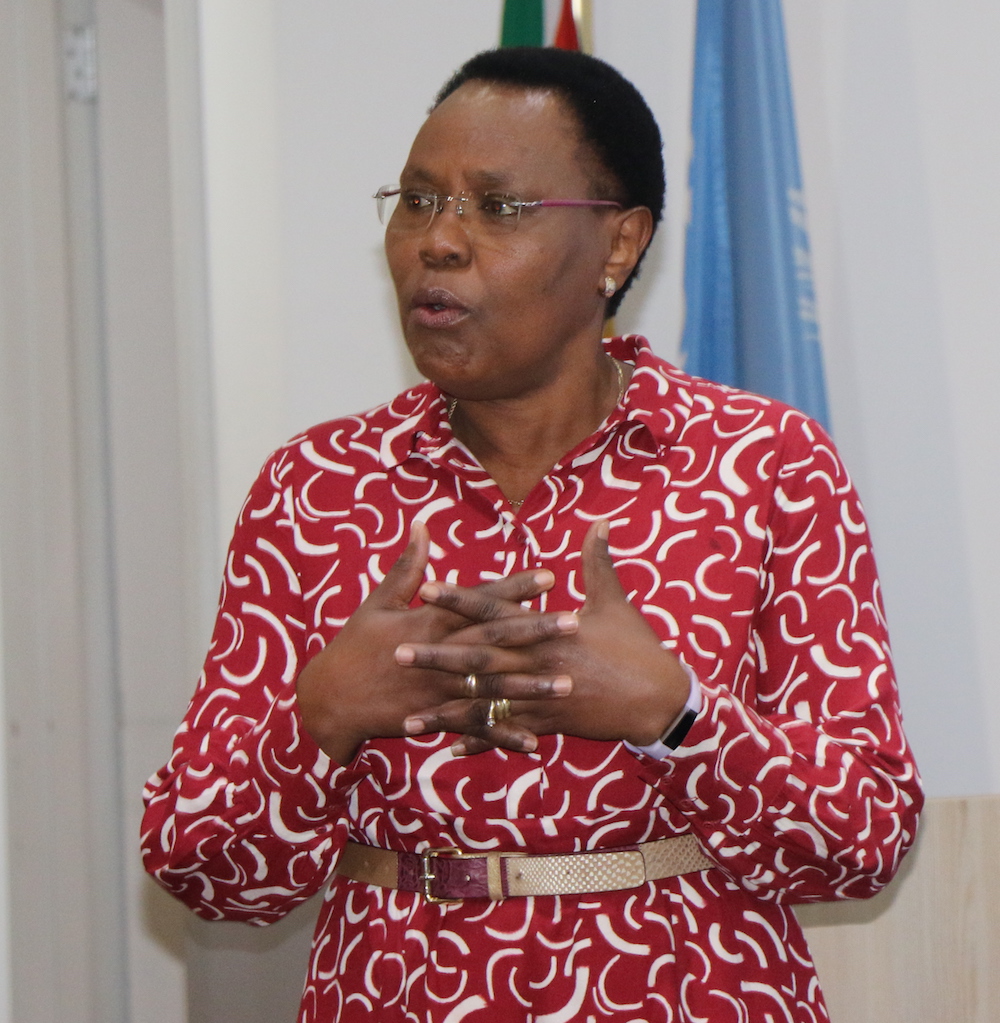
Malu, WFP Deputy Regional Director for Southern Africa.
© UNFPA ESARO/Lindsay Barnes
Gender inequality is also apparent when it comes to climate crisis-related emergencies. For instance, in East and Southern Africa, 45 million people affected by drought are in need, and those first affected are women and children, according to Margaret Malu, WFP Deputy Regional Director for Southern Africa. “Empowering women is an important aspect of the work WFP does,” she said. “It has to start from the grassroots and build upwards.”
Devi Sankaree Govender, an investigative journalist formerly with South African-based investigative journalism television programme Carte Blanche, believes that true empowerment of women and girls comes from pushing oneself forwards and not waiting. This was based on her own experiences growing up and being made to feel that she was good enough. She advised women to be themselves and aspire to achieving their dreams: “Own your truth, rock your truth – because it’s your truth,” she said.
The event included a talk-show style panel discussion on realizing women’s rights in relation to achieving zero hunger, featuring Gugu Sepamla, Group Executive of Corporate Affairs for Barloworld; Zimbabwean actress Chi Mhende, currently featured in the Netflix series Queen Sono; Professor Heidi van Rooyen, Executive Director at the Human Sciences Research Council; and storyteller Zoleka Monta.
Patriarchy empowers men, and men have the responsibility to change that.
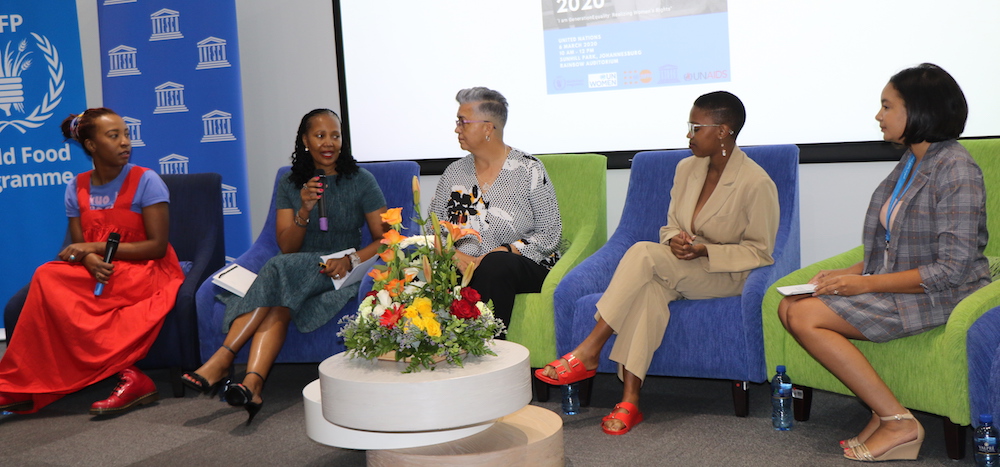
Heidi van Rooyen, Executive Director at the Human Sciences Research Council; storyteller Zoleka Monta; and WFP's Justine van Rooyen.
© UNFPA ESARO/Lindsay Barnes
Prof. van Rooyen stressed that restrictive gender norms that prevent women and girls from enjoying their rights need to be dismantled. This process starts at home, in how we raise our children. Breaking down the norms in our culture therefore starts with us, she said.
Yet women need to challenge the narrative of women speaking to women about women’s rights, ssaid Ms. Sepamla. “Patriarchy empowers men, and men have the responsibility to change that.”
Prof. van Rooyen added to this: “Women participate in patriarchy too, so when we are talking about dismantling it, we have to all look at ourselves,” she said. Women need to look at the ways in which women turn on other women and the messages, norms and values about what it means to be a man or women. She asked how those present were contributing towards some of these issues. “How in your relationships, your family, your community, are you silent because you are a woman? It requires small and big actions from all of us every day, to make things different,” she advised.
The year 2020 provides momentum to push forward the agenda for women’s rights.
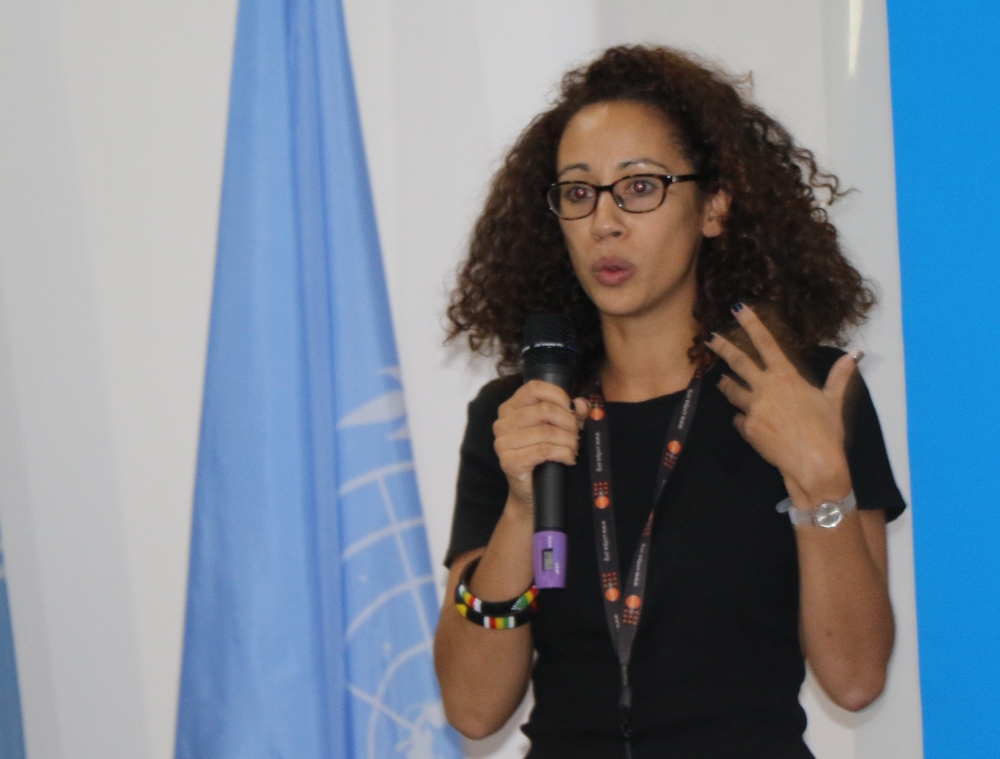
© UNFPA ESARO/Lindsay Barnes
Ms. Mhende urged women to open up space to speak out about how gender inequality is hurting women and girls, and in doing so, open up space to others too. Sexual conditioning is partly to blame in that men are often brought up to believe that a man is not masculine if he cries, or if he stands up for women. This is a conversation that needs to keep taking place to bring change. Women as mothers need to ensure that they raise the good male child, she said.
Julie Diallo, UNFPA Gender Specialist for East and Southern Africa, concluded with a call for action for equality for women and girls. “The year 2020 provides momentum to push forward the agenda for women’s rights,” she said. With the celebration of the 25th anniversary of the Beijing Platform for Action, the ICPD25 commitments made by governments, the 20th anniversary of the United Nations Security Council Resolution 1325, the 75th anniversary of the UN and, as we are entering a Decade of Action for achieving the SDGs, we can do something extremely strong, she urged.
- Lindsay Barnes and Juma Delu


